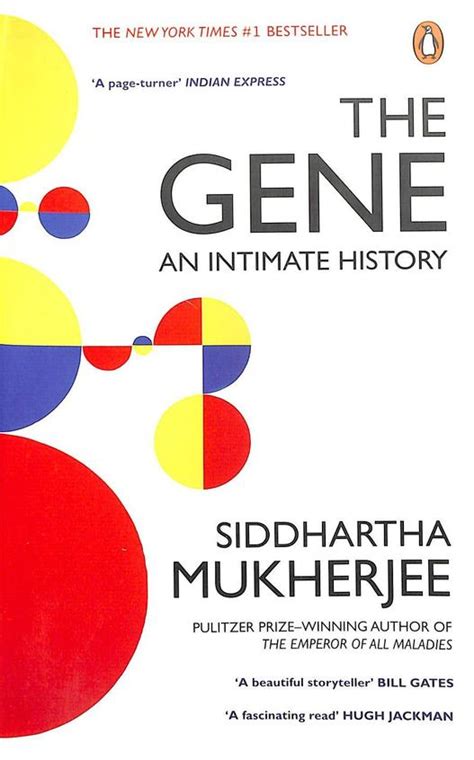The Genetic Brilliance In and Of the Gene
History of science can make for difficult sledding, easily derailed by detail or lost in the woods of explanation. Without knowledge and care, scholars can skip by the hard work, the starts and stops, and the fascinating processes that make for discoveries. When done well, history of science steers through these challenges and leaves one energized about the potential of human knowledge.
One of the best examples of the history of science done exceptionally well is Siddhartha Mukherjee’s The Gene: An Intimate History. It is an extraordinarily good book, a comprehensive volume that does not overwhelm if digested in small bites. Mukherjee tells a tale of science, of discovery, and of family history in an accessible manner, laced with beauty and grace throughout. The questions Mukherjee raises are all the more important, too, for the book goes well beyond a chronological explanation of science. The issues surrounding genes, genetics and biotech speak to fundamental concerns of identity and meaning. Who are we as people? As individuals? As a species? And of ever greater importance, what are the ethical boundaries to this amazing science of genetics? The things that we now know and are able to do today simply were unimaginable a few decades ago, and the pace of innovation is accelerating.
The Gene succeeds on several levels. Perhaps its greatest strength is its systematic pursuit of how scientists came to understand genomes, genes, DNA and the possibilities of biotechnology. Mukherjee does this as he patiently maps out terminology, concepts and the myriad of problems and solutions that emerge over the decades. The book likewise succeeds as an ethical primer. Scientific and technical advances carry with them questions of morality and of choice. How those topics are raised, debated, and resolved (or not) is a theme that Mukherjee handles elegantly. Further, he examines the very real consequences of genes and their variations in the stories of his family and others. These are not abstract scientific topics. They can and do directly affect lives. Mukherjee is a doctor, not just a scholar, and his thinking and writing are profoundly affected by a physician’s priority to heal.
The Gene stresses the essential distinctions between genotypes, what the genes alone tell us, and phenotypes, how the genes develop and manifest themselves in life. It is a distinction that carries with it significant consequences about how we think and understand genetics. It means that we have to appreciate that genetic variation is neither good nor bad. Variation is just that: variation. Some variations provide advantages in certain environments and others do not. Mukherjee is superb in reminding us of the many different ways that normative thinking can cloud or distort understanding. It was a factor in the nineteenth century, throughout the succeeding decades, and remains so today.
While explanation drives the book’s structure, finishing The Gene in no ways gives one a sense of completion. On the contrary – one can imagine many additional chapters on the innovations of the past few years and innumerable future volumes to continue to story.
Lastly, Mukherjee’s writing deserves fulsome praise. He is an extremely talented author, above and beyond his brilliance as a genetic researcher and physician. Mukherjee’s mastery of the science, his ability offer helpful framing framing of big picture issues and questions, and his skill at weaving the individual and anecdotal make this book a joy to read. It is worthy of its many awards and prizes.
I’m looking forward to reading more of Mukherjee’s books. A physician, teacher, researcher, writer – the big question remaining: When and where does he find the time?
David Potash
